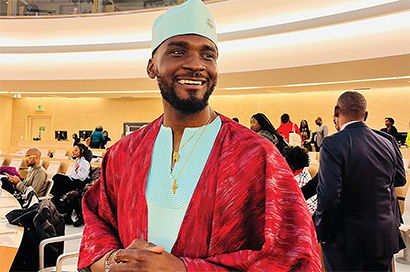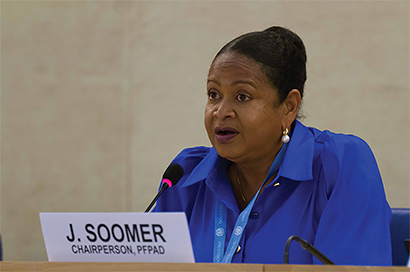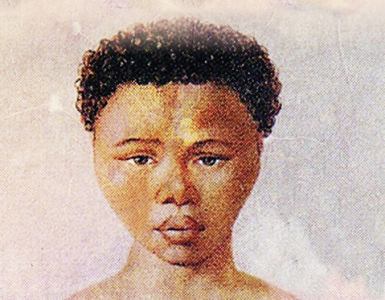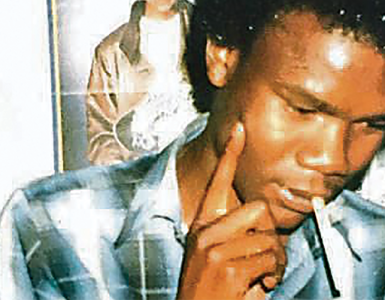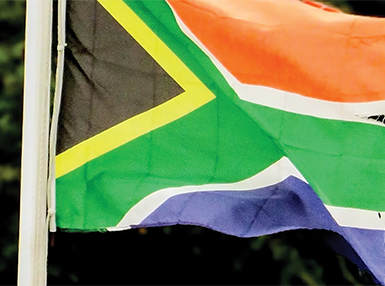MARGINALISATION: The International Decade for People of African Descent has helped shed light on historical injustices, such as systemic racism and discrimination affecting the lives of people of African descent…
By Own Correspondent
As the International Decade for People of African Descent (2015-2024) nears its end, the United Nations Permanent Forum on People of African Descent, which hosted its third session in Geneva, explored pressing issues to address in the foreseeable future, following their call to renew the International Decade for a second 10-year period.
“The Permanent Forum has captured the imagination of people of African descent as it has provided a platform for people of African descent to voice their human rights concerns and experiences, raising awareness about the diverse issues affecting them globally,” said June Soomer, Chair of the Permanent Forum.
More than two years after its creation by the UN General Assembly through resolution 75/314, the Permanent Forum, which serves as a consultative mechanism and a monitoring and reviewing body for the implementation of the programme of activities of the International Decade, has helped shed light on historical injustices, such as systemic racism and discrimination that pervasively affect the lives of people of African descent, Soomer pointed out.
Criminal justice, cultural heritage preservation, economic empowerment, education and healthcare were some of the key areas where systemic disparities were noted for people of African descent worldwide.
Soomer also said that the last international decade had seen progress, such as an increased awareness and advocacy for the human rights of people of African descent; stronger anti-discrimination legislation at the national, regional, and international level in line with the Durban Declaration and Programme of Action; and memorialisation efforts in recognition of victims of enslavement and their descendants.
One of the thematic discussions held during the last session of the Permanent Forum was on the issue of reparations, which has garnered growing momentum among states and civil society in Africa, the Caribbean and Latin America.
For Soomer, colonialism and enslavement have left structural barriers that limit the social inclusion of people of African descent globally and reparations could remove these barriers.
Lived experiences contribute to the anti-racism movement
Anielle Franco, Brazil’s Minister for racial equality, never imagined she would follow in her sister’s footsteps. An outspoken critic of police brutality and an advocate for the rights of women, LGBTI persons and young people from the urban peripheries of her city, her sister Marielle, a member of Rio de Janeiro’s Council, was assassinated on the night of March 14 2018 while she was returning home from a public event called “Young Black Women Moving Structures.” The murder, that some believe was in retaliation, also claimed the life of her driver, Anderson Gomes.
“When my sister was alive, she used to say that she was preparing me for something, to be brave, and I never understood how she had that intuition,” Franco said. “If my sister were alive, maybe we would have two strong Black women politicians now, but they did not give us the right to do so.”
In July 2018, Franco created the Marielle Franco Institute to fight for justice her sister’s murder and preserve her legacy. The organisation also produces research on racism, sexism and political violence against Black women politicians. In January 2024, she joined Luiz Inacio Lulu da Silva’s government, hoping to give people back “the right to dream.”
“When we talk about happiness in Brazil, we talk about dignity, jobs, health, food, being able to explore one’s own culture. With President Lula and our Ministry, we have been trying to bring all that transversally with many other politicians, because I cannot believe that a country like ours will not provide for 56 percent of its population,” she said.
Franco was in Geneva to attend the Permanent Forum, which she hopes will stay truly permanent.
“Whenever we unite our strength and our knowledge and put people from all over the world together in a place like [the Permanent Forum] and the whole world is watching us, it is important that we speak up for the many who are not present,” she said.
“We are probably not going to solve all the problems we have in the world for all Black people, but I think what we are doing for reparations, memory and legacy, step by step we will get there.”
In Korea, Sam Okyere is regarded as one of the most influential foreign entertainers in show business. A Ghanian national, Okyere moved to Korea in 2009 at the age of 19 after graduating high school and has lived there for the past 15 years. At the time, he said, there were not many African migrants living in Korea and the local population had general erroneous beliefs about them.
“[Koreans] initially were not too open because they did not know what to expect,” Okyere said. “As I had talent for TV, I decided that I wanted to use that same medium where people consume misconceptions to counter the stereotypes, to showcase the Africans that we truly are — that we are smart, we have a deep and rich culture, that we are open and can live in different spaces, learn the language and integrate. People here were very receptive, embraced me and thanks to that, I believe, started looking at Africans differently.”
Okyere’s participation in the Permanent Forum was his first in a meeting of that magnitude, he said, but he wished that more young Africans and young people of African descent had been given an opportunity to engage. He also called it an eye-opener as he was able to compare his experience in Korea with the experience of other Africans and people of African descent living in different context with various historical legacies.
“The topic of reparations was really interesting to me because, unlike African migrants in Korea, people of African descent in the Americas, for example, are descendants of their ancestors who were shipped to all these places,” Okyere said.
“This is this is not the main focus in Korea, but one of the things that helps us is the fact that Korea was colonised by Japan so there’s a commonality in that regard and it almost becomes a bonding experience for us where we can say that we are not that different from Koreans.”
In Geneva, participants and members of the Permanent Forum called for a second International Decade focused on reparatory justice, recognition and equity, the eradication of systemic and structural racial discrimination, prevention, combating inequality against people of African descent in the digital age, climate justice, and the full recognition and implementation of The Durban Declaration and Programme of Action (DDPA).
A second International Decade should also address educational inequalities and promote inclusive educational policies; address health disparities that continue to affect individuals of African descent due to limited access to healthcare services, higher rates of chronic illnesses, environmental health risks, and unequal treatment within healthcare systems; and environmental justice issues that disproportionately affect communities of African descent through factors like environmental pollution, climate change vulnerabilities, lack of access to clean water or sanitation facilities, and inadequate disaster response mechanisms.
As coordinator of the first International Decade, UN Human Rights Chief, Volker Türk, added his voice during the session of the Permanent Forum to the call for states to proclaim a second International Decade, “so, we can build on the gains made so far, and address the many ongoing challenges. Racial discrimination is a severe violation of international human rights law; indeed, it is a rejection of its core values, our shared humanity and equal worth”.



